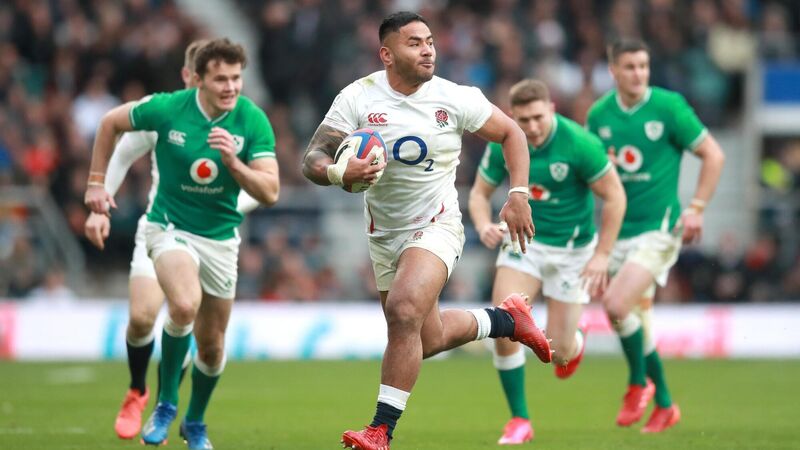Relief for IRFU as new Autumn tournament fills void

England's Manu Tuilagi carries the ball during the Guinness Six Nations match at Twickenham Stadium, London. The sides meet in the Autumn Nations Cup on November 21
They say necessity is the mother of invention but it is not often enough to turn that innovation into a viable product.
The announcement and confirmation of a new Autumn Nations Cup, kicking off with Ireland versus Wales in Dublin on November 13, then, will have been greeted with relief in rugby’s corridors of power, not least at IRFU headquarters on Lansdowne Road.












